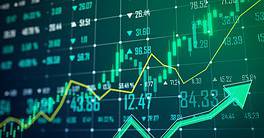Leaders from the Central Bank of Taiwan (CBC) and five banks active on the island discussed post-Covid supply chain challenges, inflation, and tensions with Chinaduring Global Finance's recent roundtable.
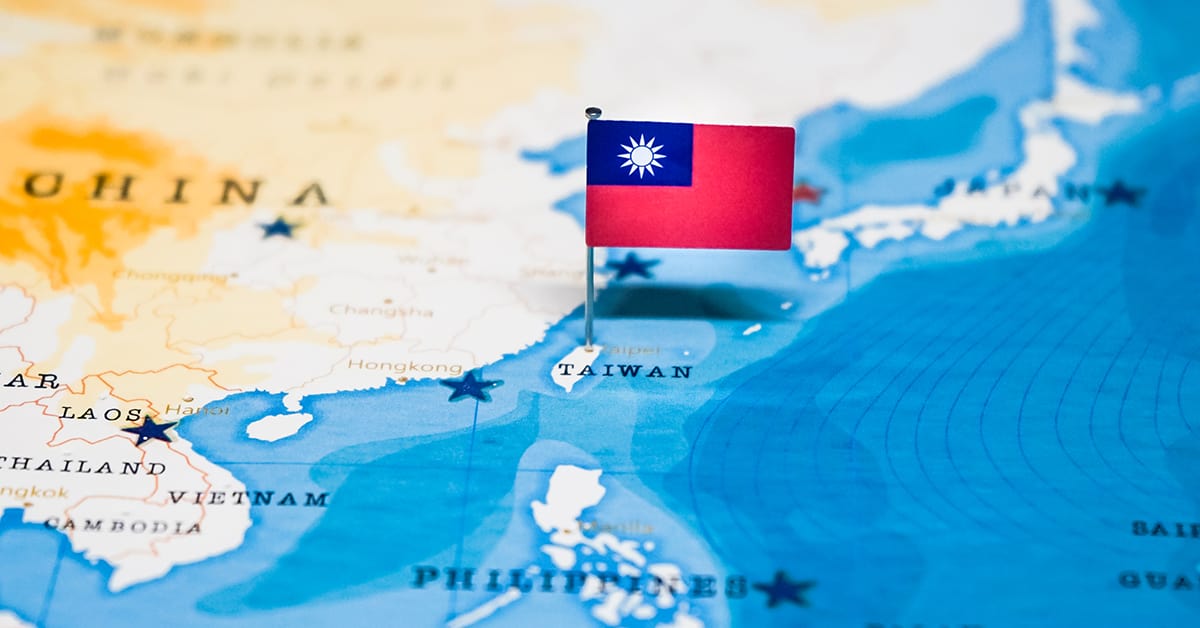
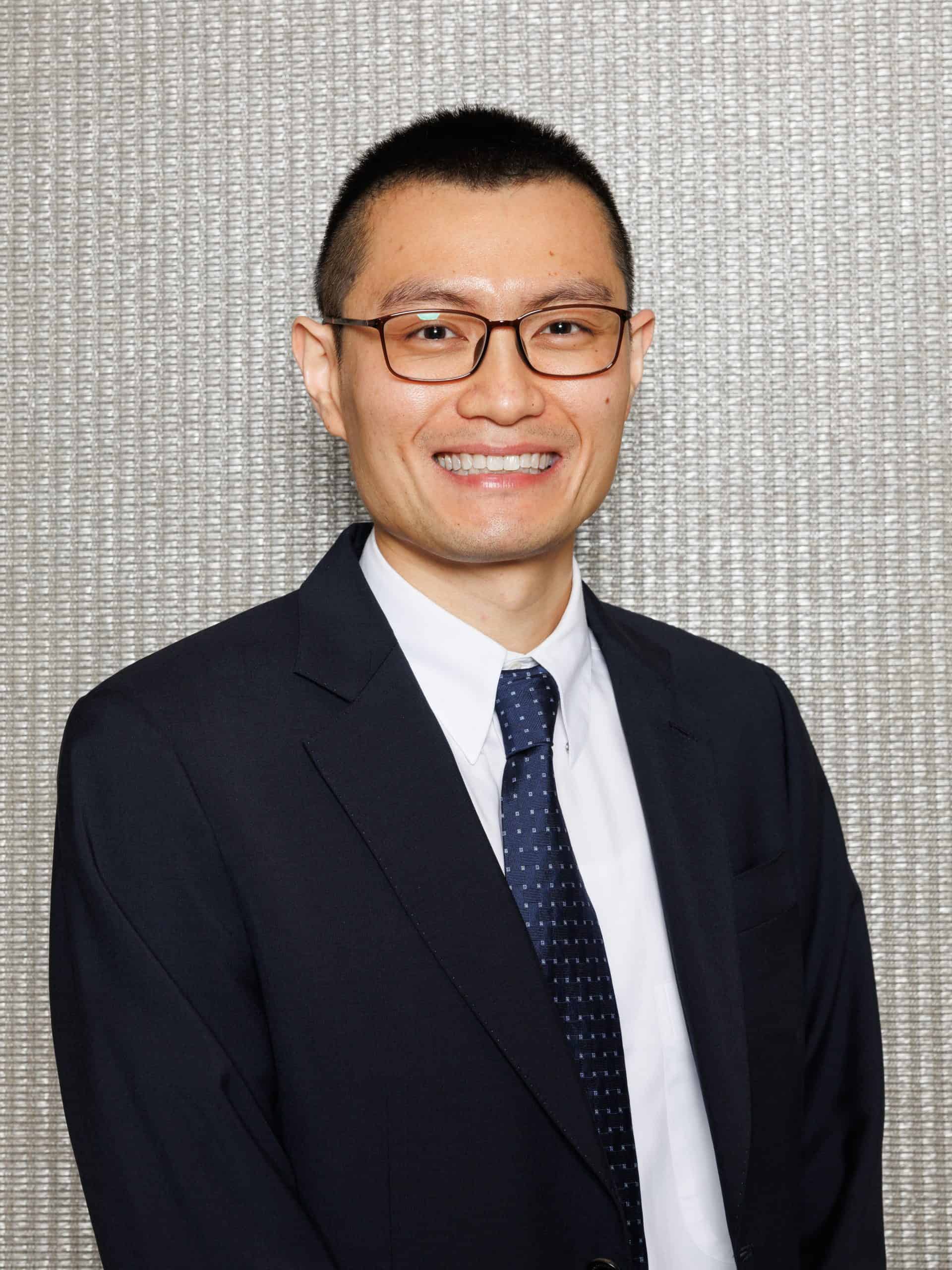
Global Finance: Let’s start at the 10,000-foot level. What is the economic outlook for Taiwan in the short and medium term? Is there a risk of recession?
Michael (C-Y) Yang, CBC: Concerns over global economic slowdown have loomed due to the drastic interest rate hikes by major central banks since last year. In addition, weak demand for consumer electronics and ongoing inventory adjustments has constrained Taiwan’s export growth momentum. Gloomy export prospects and weak market sentiment have kept private investment downbeat. There are other challenges, including the pace of economic recovery in China and spillover effects of the US and European bank failures. However, exports are likely to regain momentum in the second half of this year.
Tony Phoo, Standard Chartered: At the moment there is a market consensus that the current downturn in consumer electronics will probably bottom in the second quarter. Also, an expectation that the inventory adjustment will come to an end. Standard Chartered forecasts 2.2% growth for full-year 2023.
But there are a few things that we are keeping an eye on. If you look at Taiwan export data and export order numbers, the pace of year-on-year decline has actually worsened versus the fourth and third quarters of last year, and we have not seen signs that the pace is likely to ease or stabilize within the next one to two quarters.
Recent interactions with some corporate clients have also revealed some concerns. Some who had earlier predicted that the consumer electronic downcycle will come to a bottom around the second quarter of this year are having second thoughts now. Second, there were a lot of expectations that a rebound in the China economy would spill over to export-driven economies like Taiwan, but over the last two months we have seen that China’s recovery is still very much contained or geared specifically toward domestic services-related consumption.
Third, although US and Europe have so far generally done better than the market expected, given the recent turmoil, we have to keep an eye out for aftereffects.
Ruby Ho, HSBC: For the last three years, Taiwan has had a relatively higher base GDP than many other countries. Our average GDP is about 4.1%, which is much higher than South Korea’s average of 2%, while Japan is close to 0.3%. And geopolitics presents opportunities as well as risks. There is more demand for the national security industries being set up by the big Western countries, such as the chip industry, biotech, medical AI, and so on, and Taiwan is the key provider in the chip supply chain as well as the key producer of IT hardware, OEM [original equipment manufacturer] packaging, and testing [equipment]. So, as long as Taiwan corporates follow this global chain—which is our relatively strong niche—the advantage will continue, given that these companies are already quite internationalized.
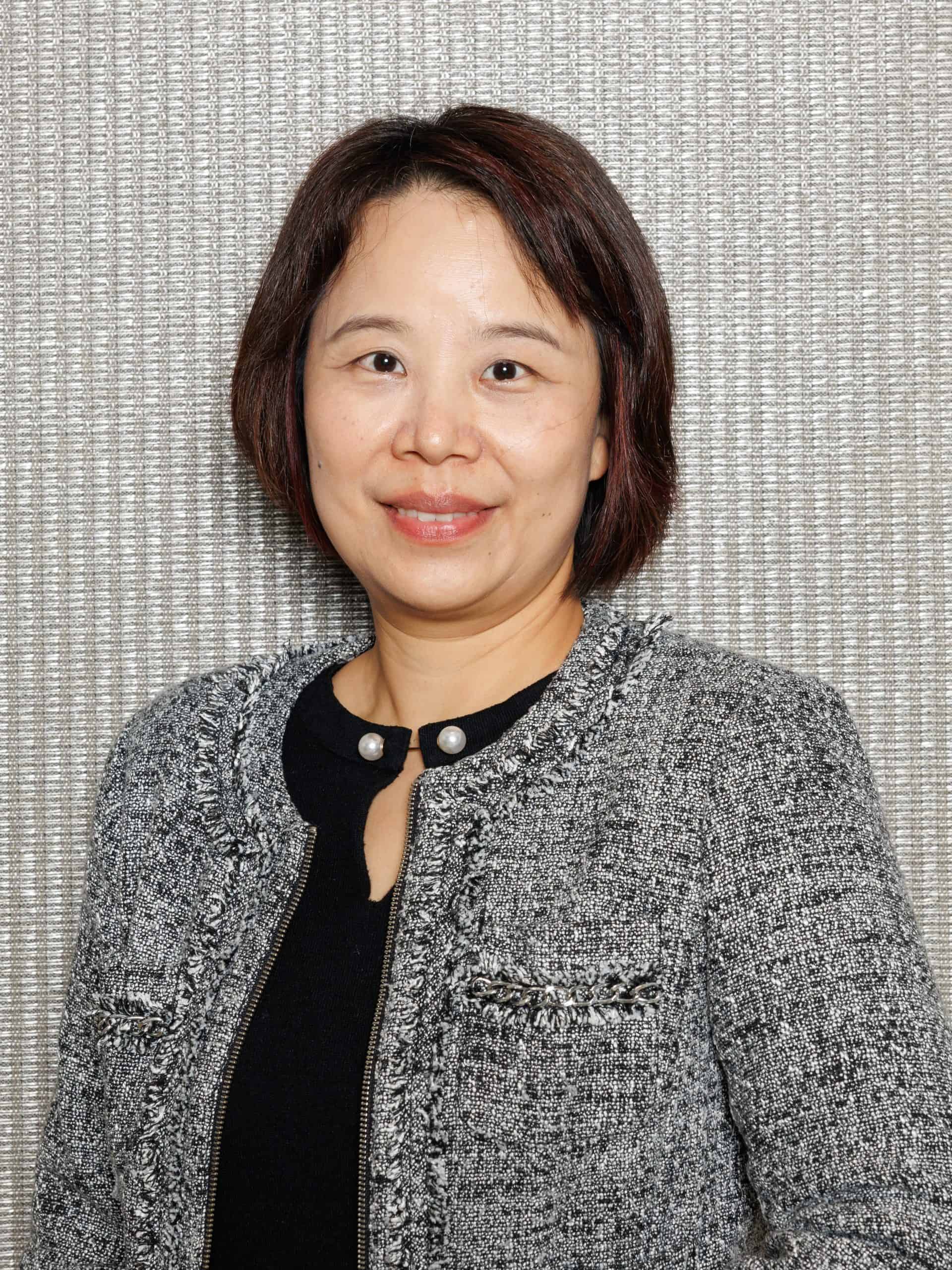
GF: What about foreign direct investment (FDI) into Taiwan, and outward direct investment (ODI) from Taiwan? Have they changed?
Ho, HBSC: Both FDI and ODI have grown in the past few years. We have two major FDI sources. The first one is the US tech companies—Google, Microsoft, Meta, Apple, Amazon, Micron Technology, and so forth—and then the European and renewable suppliers that we saw. If you look at the percentages, averaged over 10 years, FDI is like US 30%, Europe 36%, and then Asia about 25%. But if you look at just the past four years, in which we start to have the US-China conflict, US is roughly similar at 27%, but Europe is increased to 40%, and then Asia is about 23%.
We also have ODI increasing. I just mentioned western countries that have invited Taiwanese companies to invest in their national security industries. To take one example, TSMC [Taiwan Semiconductor Manufacturing Company] has increased its investment in the US, Japan, and, reportedly, Germany.
But the interesting part is that ODI has changed quite a bit. Twenty years ago, 70% of money went to China, but now China is about 35%. In the past four years, we have increased ODI into the US, and it’s now about 24%. We have also increased Asia ex-China from a 10-year average of 27%, to 41% more recently. That has been on the back of this US-China conflict and [the realization] that we must have a China Plus One supply chain (NB a strategy to diversify investments and focus not just on China) to capture all those business opportunities.
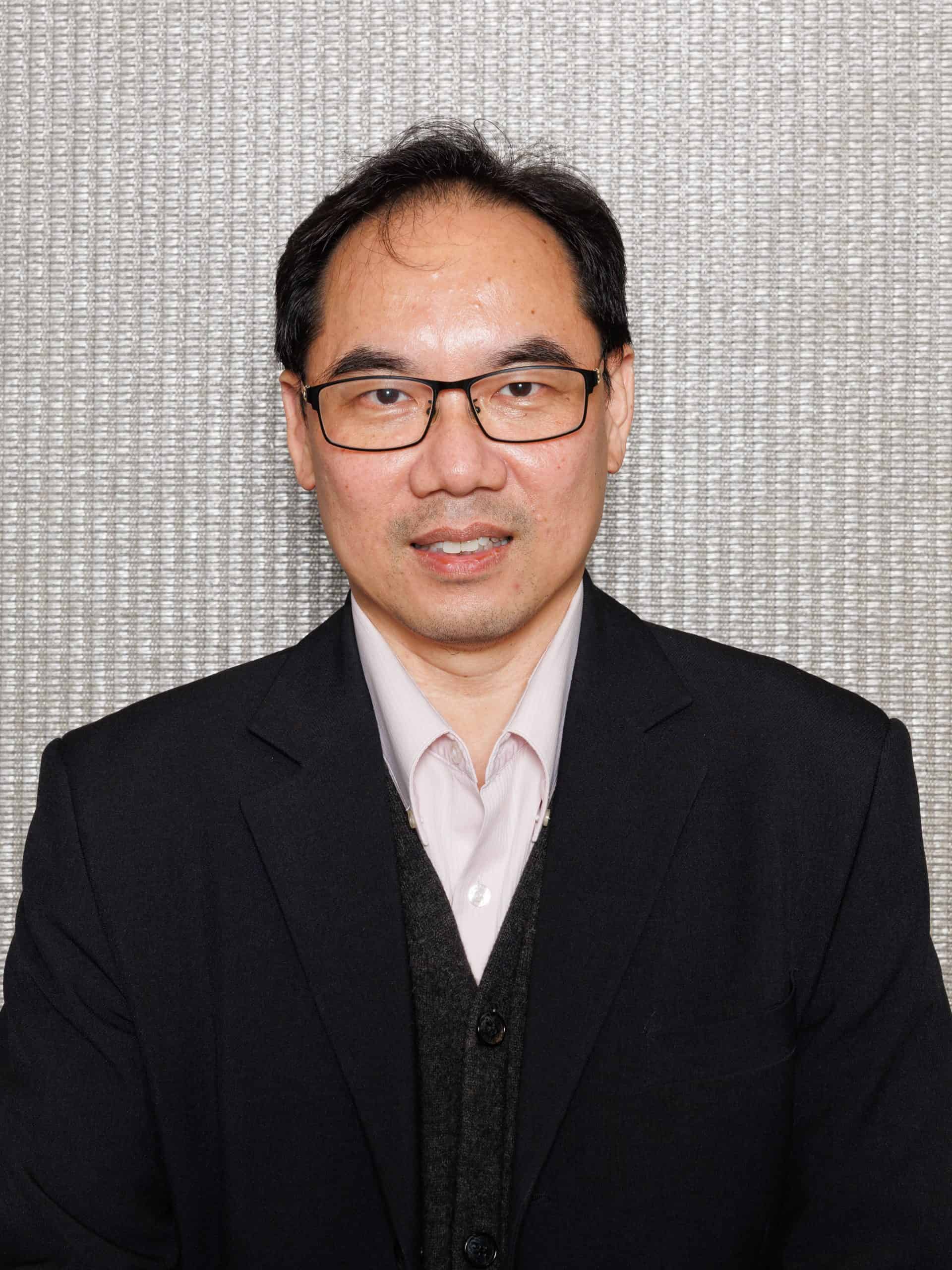
Phoo, StanCharter: In this case, one needs to separate between the concept of GDP and GNP. How much can Taiwan actually benefit from the various trends that Ms. Ho mentioned? When you look beyond 2023, what Ruby has shared is generally positive for financial services, because we are not bounded by boundaries. And particularly, we serve clients offshore even better. A lot of Taiwanese businesses are not likely to be able to establish strong banking relationships outside of Taiwan, so that’s where Taiwanese financial institutions can deliver.
However, our view is that the global economy is set for a rebound, longer term, because we see a lot of demand [still] being held back because of Covid-19. If we look at Europe, the US, and even China, a lot of the initiatives have actually been set in that can build a quite substantial recovery in demand in the long term as well. Taiwan has two very specific areas. One is tech, the other one will be renewables.
Medium term, Taiwan’s infrastructure may not be able to accommodate an increase in investment that is going to draw a lot more on water, electricity, etc. That will limit the ability of Taiwan to continue to rely on semiconductors. Some of these are likely to venture into US and elsewhere outside of Taiwan. So longer term, this displaces Taiwan’s ability to export more IC [integrated circuit] chips.
That’s why this concept of GDP vs. GNP [is important]. TSMC as a going concern is not an issue; it will remain the most important chip producing company in the world. But how much of TSMC’s chip produce will be here in Taiwan, and how much will get produced outside? If you look at 2022, semiconductors have been the single largest component of Taiwan’s trade surplus.
So over time, when our ability to export more semiconductors or IC chips declines, we will no longer be able to generate more trade surpluses. That means our current account will peak. And that has implication in terms of our longer run potential growth.
It has implications in terms of government policy. Given that you’re now more dependent on external trade, do you use domestic fiscal policy in the hope that it will provide a cushion against a potential downturn in global trade?
Now if you look during Covid-19, we have done better than most other economies, because we were able to continue to keep the science park going when most of the other regional markets were in lockdown, right? But my concern is that if we see another global trade downturn, the fiscal stimulus is not likely going to be very effective, because the economy has become more sensitive and more closely correlated to the global trade cycle.
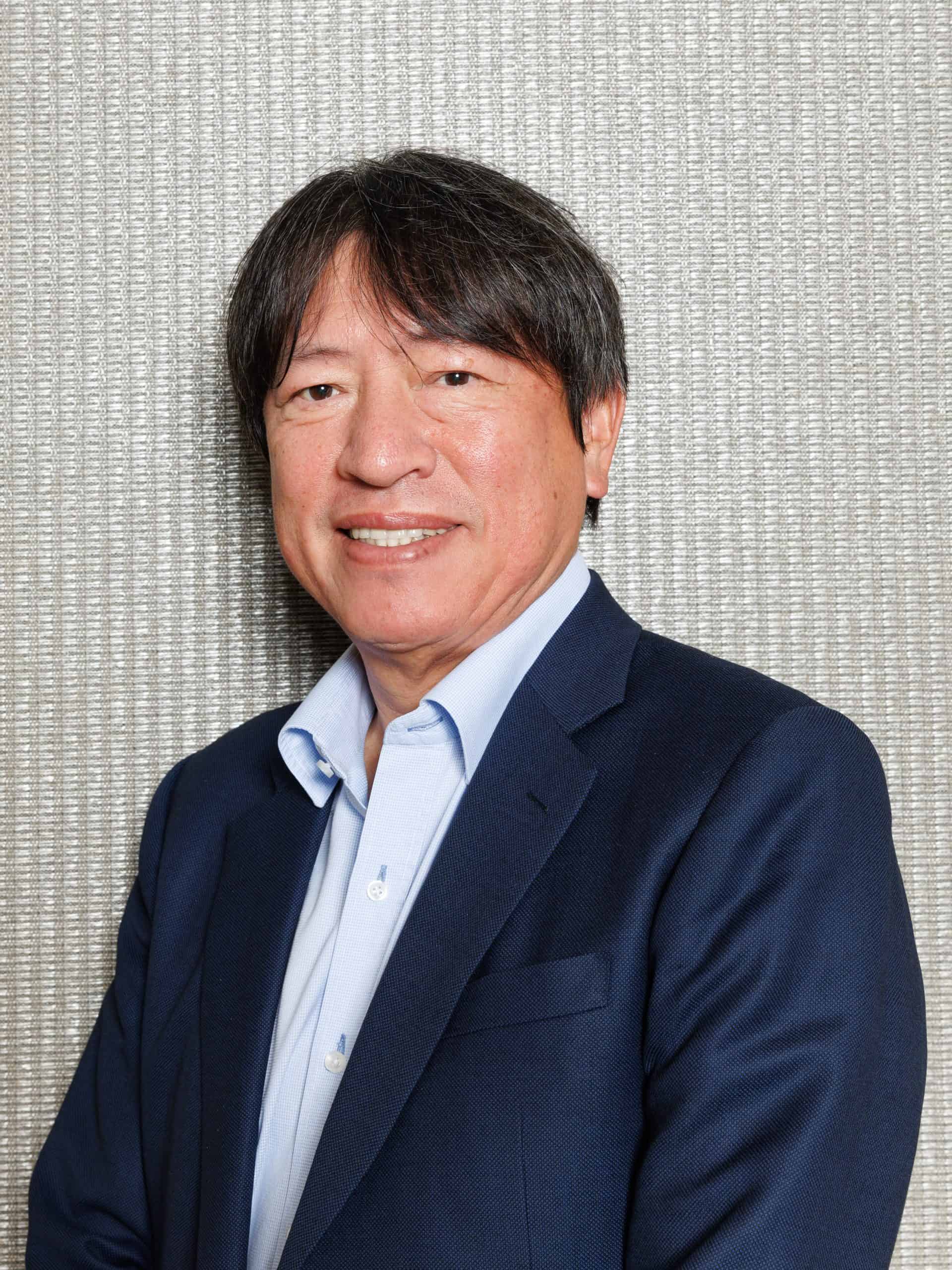
GF: What is the government doing, or can it do, to supply a more effective fiscal buffer?
Eric Chien, Taishin Financial Holdings: We have been attracting foreign investors to Taiwan for different industries. The government encourages renewable energy, and also sponsors quite a lot on financing offshore wind farm projects. That’s a quite a big project in Taiwan: not only the construction, but also IT. Taiwan has been good at attracting people to set up here. In recent time, big players in US and Europe have come to Taiwan’s data centers. And we have, good capable people here.
GF: Regionally, capital has been moving into Singapore from elsewhere, most notably from China. How is this trend affecting Taiwan? Is private banking a component of this?
Josephine Chen, Mega Bank: At Mega Bank, some of our corporate customers are post-war baby boomer entrepreneurs. They sold their businesses during the height of the pandemic, and they’ve begun thinking about inheritance and estate planning solutions. We are focusing on private banking business for the local market, but we also want to develop IT infrastructure for our offshore private banking business. Very importantly, we are focusing on the offshore funds expatriating back to Taiwan, especially due to tax policy. From 2019 through 2021, we saw at least US$1 billion come back to Taiwan through Mega Bank.
Chen, CTBC: In the past, Hong Kong branches or subsidiaries accounted for around 60% of overseas revenues; now, that’s dropped to 40%. But the movement of the money is really because of the Singapore’s strategic location not really because of the political threats to Taiwan. I consider this normal business flows.
GF: Even in a recovery, are current market valuations a risk?
Phoo, StanCharter: Probably the right word is they’re trying to ringfence some of the potential risk in terms of their operations, a large portion of which are located in China, Hong Kong, and Singapore. Manufacturing-wise, they’re still big in China. There are some investments elsewhere, such as Southeast Asia, but I don’t sense that any of these are going to be substantially bigger than the operations in China.
On an international level, their concern really is with the current tension between China and US. Apart of the potential risk of trade sanctions is that they would include a certain level of financial services. They want to diversify some of their manufacturing base outside of China, basically into Southeast Asia. They are at this moment setting up alternate treasury offices in Singapore as well because the last thing you would want is that, if the risk materializes, you run an operational risk. Then you’ll be strapped for the ability to pay as well as receive. So that’s the process some of our clients are undergoing at this very moment.
Interestingly, over the last four years, a large part of the FDI into South-east Asia is actually for manufacturing services, however, the part into Singapore is actually financial services. So it shows that now Singapore is actually acting as a sort of an alternate regional trading center for the South-east Asia market.
Naturally, Taiwanese businesses will continue to invest in Asean countries.
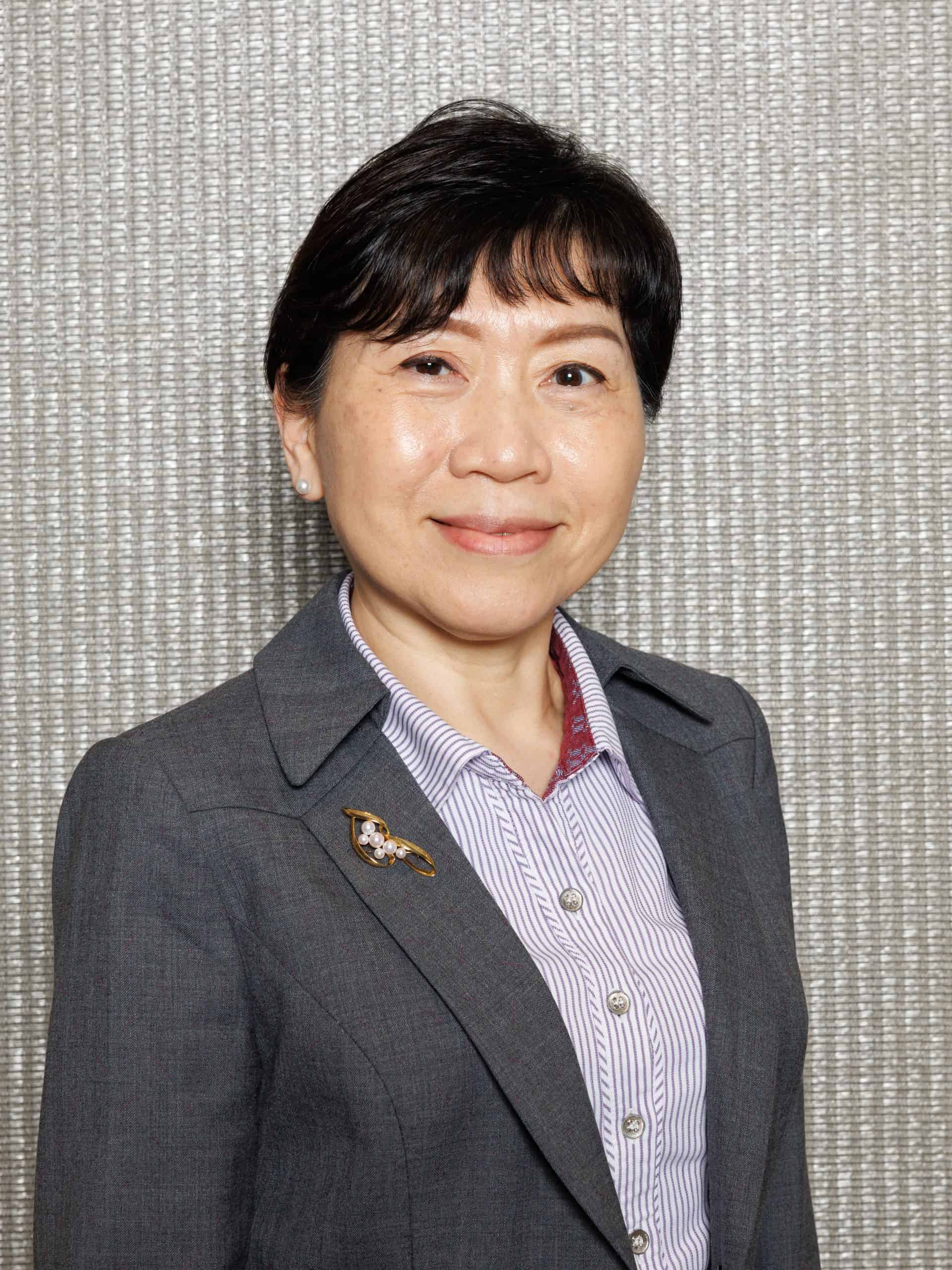
Chen, CTBC: Do you think people like to go to Singapore because they’re politically neutral?
Phoo, StanCharter: I don’t think it’s all about geopolitics. Maybe Singapore not being too political has its attractiveness, but then, why do some pick Bangkok instead of Singapore? Bangkok actually provides a better location, geographically speaking, it gives better access to Vietnam, Cambodia, and Myanmar. It’s probably that these particular clients have a slightly different technology or strategy. It’s an all-encompassing consideration.
There’s more money moving from Hong Kong to Singapore than, say, from China to Singapore or Taiwan to Singapore. In that sense, Singapore is seen more as a risk diversion from Hong Kong. They are not competing with our Taiwanese money; they’re actually competing with the Hong Kong money.
Ho, HBSC: Based on the conversations we’ve had with corporates; they choose Singapore because of the infrastructure and legal framework and financial system framework. Another thing may be tax.
GF: Let’s go back to domestic issues. For someone coming from the US, Taiwan’s inflation numbers are impressive. Are you satisfied? What is your forecast, and is this a problem that Taiwan will have to tackle?
Yang, CBC: The CBC expects domestic inflation to cool down this year, as global supply chain bottlenecks ease off and the price of international commodities continues to trend downward. However, we notice that demand for entertainment services has risen significantly while consumer activities return to normal, thereby pushing up service prices.
On the other hand, elevated food prices and higher electricity prices are expected to affect the overall price level. The CBC, therefore, projects both CPI and core CPI inflation to reach 2.09% this year. However, inflation outlook could still change depending on weather events and price trends of international commodities and domestic services.
Joe Chen, CTBC Bank: In Taiwan, we haven’t been that worried about inflation—at least, not for the past 20 years. But with regards to the inflation management by the CBC, they have done a pretty good job. If you compare the CBC with other central banks, they are one of the best. They not only manage inflation well, but they also communicate well with the public and with the government departments.
Phoo, StanCharter: We see inflation as having already peaked in the middle of last year. So, it’s actually on a gradual downtrend. But I think the reason inflation is as low as it is here in Taiwan is the way in which the economy reopened. The US, Europe, and UK came out of their Covid-19 policy at a time when the global supply chain was still very much distorted, when oil and commodity prices were affected by the Ukraine crisis. But in the case of Taiwan, I know we managed our Covid-19 policy relatively better, and we came out slightly later than US and the UK.
Yang, CBC: One reason Taiwan was able to curb inflationary pressures better than other countries was that the government introduced a series of supply-side controls to contain inflation. For instance, the government temporarily lowered the commodity tax rates on petroleum products and implemented price freezes on natural gas for households. Also, the state-owned energy suppliers utilized the price stabilization mechanisms to limit price hikes and kept fuel prices at the lowest level relative to neighboring Asian countries (Japan, Hong Kong, South Korea, and Singapore). Consequently, the state-owned energy suppliers were responsible for absorbing the price hike when crude oil costs soared.
GF: We have seen the central bank raising rates here, and I don’t think it was widely expected. In the US too. Can you comment on how many rate hikes we can expect, or when they might stop?
Yang, CBC: Although Taiwan’s current inflation rate is significantly lower than that of Europe and the US, it is still higher than the average inflation rate of 1% over the past ten years. As higher-than-usual domestic price gains can raise inflation expectations, the CBC judged that a continued policy rate hike of 12.5 basis points would help rein in inflation expectations and achieve the policy objectives of promoting price stability and fostering sound economic and financial development.
Perhaps the policy rate hike was not widely expected. However, as Governor Yang Chin-Long stated at the press conference after the meeting, the Bank’s policy decisions are data-dependent.
GF: The subject of semiconductors has come up a couple of times. How much will production of semiconductors move out of Taiwan, and what are your other impediments to future growth?
Phoo, StanCharter: This is something we discussed in our report late last year: the impact of the US sanctions on the sale of high-performing chips to China. These incentives from the US alter the landscape in terms of the semiconductor supply chain. We worked on a rough estimate, and it could reduce Taiwan’s GDP by about 4% in the longer term—quite substantial. I am not saying that the Taiwanese government will allow this without taking countermeasures.
It makes sense that Taiwan is looking to reopen its international border. Pre-Covid, tourism receipts accounted for about 2% to 2.5% of GDP. Last year, we still had a very strict policy on international travel. Assuming that this returns to a pre-Covid levels, this segment could contribute about two percentage points of GDP. So that should partly negate the loss of output as a result of this so-called potential shift in the global semiconductor supply chain.
We are still left with a gap, which is why Taiwan is driving investment into renewables. It solves a number of policy issues in the longer term. Investment in renewables would easily contribute roughly 1 percentage point of GDP, so that should balance up the impact coming from the lost output as a result of the shift in semiconductors.
GF: The collapse of Silicon Valley Bank (SVB) inaugurated a wave of instability in the global banking landscape. Does Taiwan face any spillover effects?
Chen, CTBC: Our house view is that the region won’t really see a lot of serious impact on Taiwan as a chain reaction to the US regional bank crisis. But if the regional banks’ issues worsen and even more crisis situations occur, then it’s hard to say. But last year, Taiwanese banks made NT$392 trillion: a record high. The CAR ratio is about 14%—much higher than the required 8% or 10%. The non-performing loan ratio is very low, at 0.15%, And the ROE and ROA ratios are also rising from last year. In short, we don’t really see there will be any significant spillover effect for Taiwanese banks.
Chen, Mega Bank: At Mega, we are strengthening our long-term resilience and capital adequacy. For the current time, domestic banks are okay.
Ho, HBSC: Taiwanese banking institutions have the same liquidity ratio and stress-test requirements, no matter the size of the bank. In addition, in its open-market operations, Taiwan has over NT$8 trillion in NCDs [negotiated certificates of deposit] outstanding, and the duration is quite short. Every day you got mature NCDs which inject liquidity back into the system.
Phoo, StanCharter: I’ve long said that during times of financial crisis, Taiwan tends to outperform most of the other markets. Why? Because this is an economy with a very strong ability to generate US dollars because of our trade surplus and our huge current-account surplus.
GF: Our last topic is sustainability. What are Taiwanese banks doing for themselves, and what are they doing for clients?
Chen, Mega Bank: At Mega, we are abiding by the commitment we made on the environment, to the society, to investors, to customers, and the company, to shape a culture of sustainability where employees are deeply aware of the importance of ESG practice. Mega is also following the national policy to promote inclusive finance to fulfill our financial and social responsibility.
We also aim to consolidate financial resources, exert influence, and guide enterprise and investors to focus on sustainable development to realize the vision of the UN, and of the Taiwan 2015 zero net-zero emission goals, for ourselves and for our clients.
Ho, HBSC: The industrial landscape of the world will fundamentally change over the next decade. We have found that there is a net-zero demand—that buyers are actually demanding that corporates follow the net-zero journey. That has put high pressure on not only Taiwanese corporates, but the whole supply chain. Europe has been the key developed area in the world in this respect. A lot of Taiwanese corporates get experience from their European customers as well as from European policies.
We had almost 20 times greater ESG exposure last year compared to 2020. In Taiwan, we have provided ESG products to wealth, wholesale, and retail clients, including green deposits, green loans, green standby LC, green guarantees, social guarantees, sustainability-linked loans or social bond underwriting, and green bond insurance.
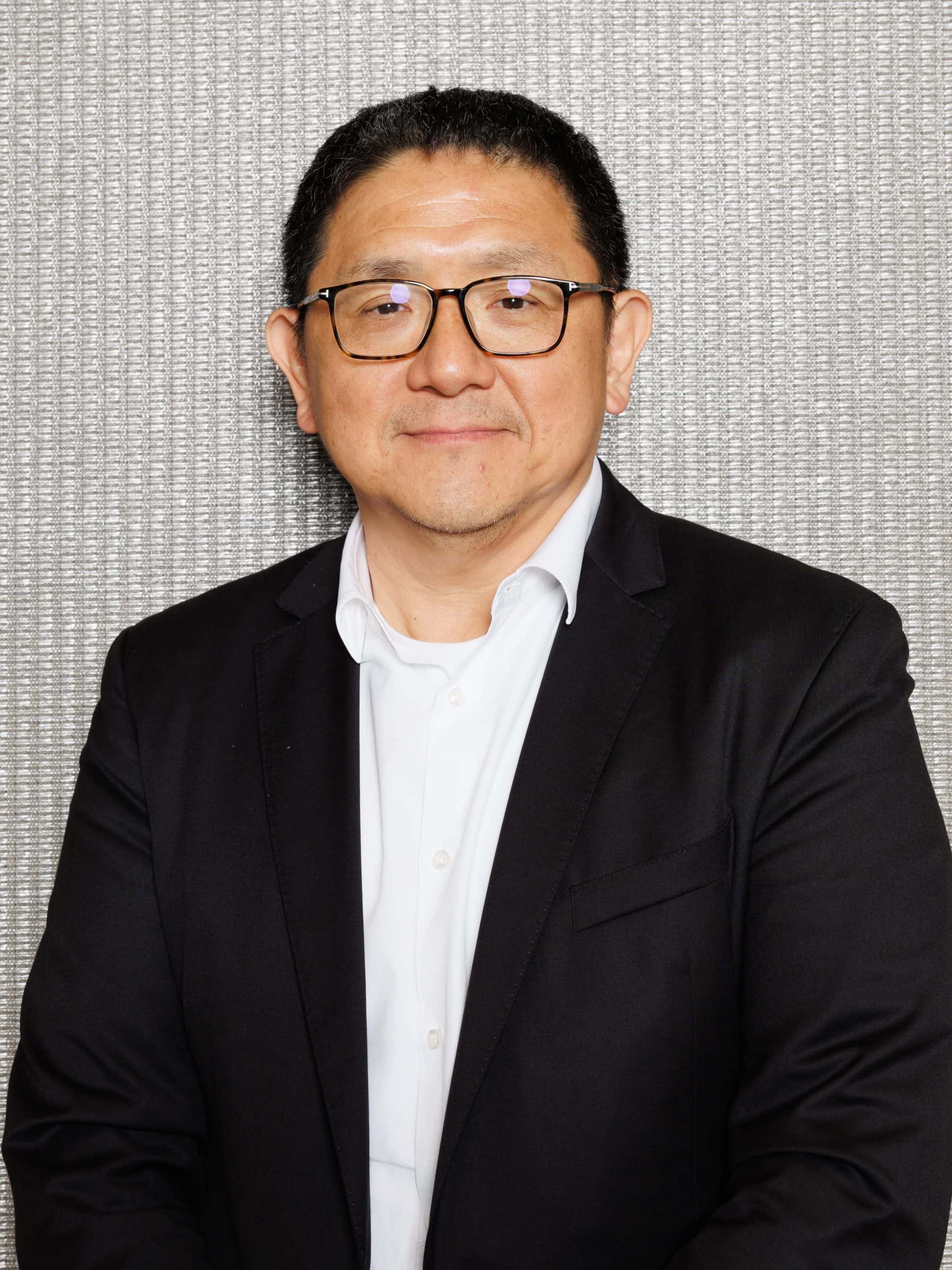
Chien, Taishin: The government has been trying to reduce carbon emissions. We will have to do everything applying the so-called zero-carbon emission standard.
However, Taiwan has been using nuclear power and also so-called thermal power plants, although the government is trying to stop thermal as some point in the future. However, we cannot avoid simultaneously abolishing thermal and also nuclear power plants. If you see something happen, like the earthquake in Japan, which affected us quite a lot, resuming nuclear power generation becomes a political issue. We have to enter the renewable energy field through solar power plants and offshore wind farms. That will also encourage foreign investors to come to Taiwan. There’s quite a milestone for the Taiwanese government and corporates here.
Ho, HBSC: We see carbon exchange in South Korea, Singapore, and China, but we don’t have that in Taiwan yet. However, Taiwanese corporates will be quite highly exposed to these new requirements, for example, in Europe. Then the government will have to negotiate with Europe to see whether the carbon tax that’s charged here will be offset there.
From the whole-government perspective, everyone is working on this; they’re doing a lot of training, education, support for businesses. But in terms of carbon exchange, carbon pricing, those more practical tools will require more government support.
Phoo, StanCharter: This has to do probably with our longer-term trade competitiveness. We all know that the major overseas markets that Taiwan trades with are the US, Europe, Japan, and China. For example, failing to meet European standards would mean that, if there is a ‘carbon’ surcharge on goods that are exported to Europe, that will undermine your overall competitiveness and you will end up losing market share. And that will have a lot of repercussion back onto the Taiwan economy.
Chen, CTBC: Just to note briefly, Taiwan is not a member of the UN. But you see what the government is doing is to really communicate with the corporates. From that perspective, I don’t think we are behind. We are actually ahead of other countries. The corporates move really fast.
Josephine Chen is senior executive vice president of Mega Bank, supervising financial markets business group and consumer banking business group. Prior to her current role, she was in charge of the Wealth Management Department. Chen joined Mega Bank (formerly known as ICBC) in 1989. She holds a master’s degree in Accountancy from the University of Missouri at Columbia, USA.
Joe Chen is Head of the Trading Divison Head at CTBC Bank, where he worked for six years. Prior to joining CTBC, he had served as Head of Trading at Standard Chartered (China & Taipei), after a decade with HSBC (China & Taipei). He attended Carnegie Mellon University in Pittsburgh, PA, where he earned his master’s degree in Computational Finance.
Eric Chien is the Chief Investment Officer of Taishin Financial Holding Co., Ltd. and CEO of the Finance & Financial Market Group at Taishin International Bank.He attend the University of Exeter, where he earned his master’s degree in Finance and Investments.
Ruby Ho joined HSBC in 2011 and is currently head of Markets and Securities Services, HSBC Taiwan. With tenures at several international banks prior to HSBC, Ruby has more than 25 years of banking experience, and specializes in balance sheet management, FX trading, fixed income investment and market risk management. Ruby holds a bachelor’s degree in Finance from National Taiwan University.
Michael (C-Y) Yang is a senior economist at the Central Bank of the Republic of China (Taiwan). Prior to his current role, Yang served as an assistant research fellow at Chung-Hua Institution for Economic Research. Yang holds a PhD in economics from the University of Illinois, and a bachelor’s degree from the State University of New York.
Tony Phoo is a senior economist at Standard Chartered (Taiwan), covering Taiwan and Northeast Asia. Phoo holds a master’s degree in International Economics, Banking and Finance from the University of Wales, Cardiff (UWCC) and an honors degree in Economics from the University of London.


